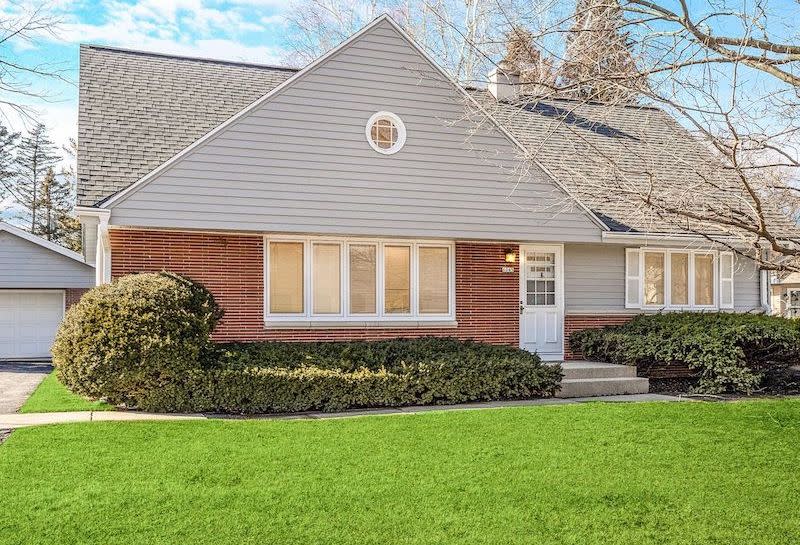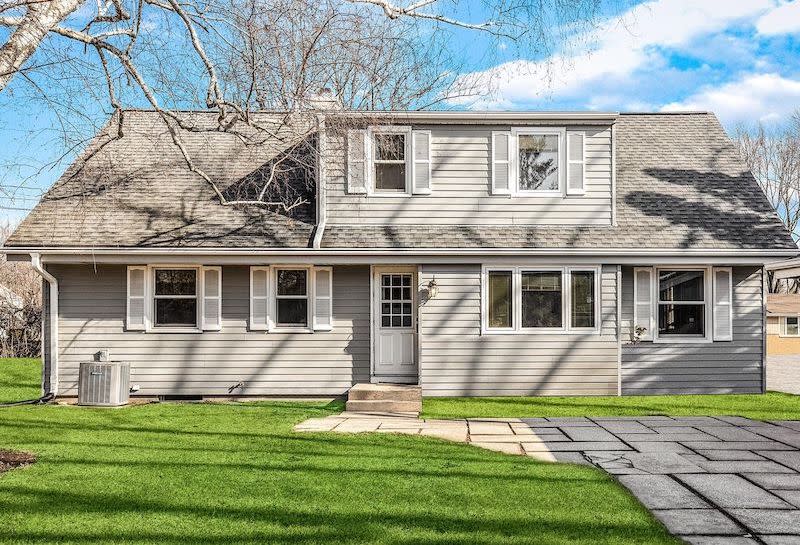As I hit publish on this, my wife and I just closed the deal on the purchase of our first home. We both do our best to make well planned decisions in most cases, but the decision to buy a home was quite impulsive and definitely the best impulsive decision we could make (at least we think so for now).


Detail: 1860sqft, 4 beds, 2 baths, an attic office, 2-car garage, central air, 75% finished basement.
I’ll start with the detail of the home purchase and come back to how we ended up deciding to buy a house.
In February 2022 we started looking at houses with a real estate agent we had worked with in our past endeavors to purchase an investment property. She is an amazing agent that listens to our needs and gets us to see the houses that meet our descriptions and goals.
At the start of the search, my goal was to purchase a home we can pay off in 10 years or less. This is contrary to popular advice to leverage 30-year fixed loans and we had come to this conclusion because it is what best fits into our bigger financial plan. I would choose a 30-year fixed for an investment property but for our residential property, I like the idea of transitioning from equity to full ownership much faster while also paying a lot less on interest.
We started by looking at relatively cheaper homes. The problem with that while searching within a zip code that has very low crime rate, good school district, and other beautiful homes is that a lot of our results were properties in really bad shape for fixer-upper. I had thought the condition of the houses made for less competition but I had no idea these were gold mine to cash investors. They ate them up as they got listed. Another thing with these kind of homes was that my wife was not as excited about them as I was. She had a very valid concern which is that with our lease ending in June, closing on one of these even as early as in April will mean we have to spend a lot more money upfront to get it ready for move in. While I like the idea of spending money upfront and having less mortgage, my plan there was not practical enough. It would be a big struggle.
Our next step was to increase the amount on our pre-approval letter. A little detail I almost skipped is that the hunt for fixer-upper homes also meant putting aside our preferred lender with better perks for lenders offering renovation loans. We were eventually able to lock a 15-year fixed with mortgage we can afford at 3.375% rate using the lender we preferred. Going 30-year would make us end up paying up to 47% more of the purchase price at 4.25% rate. The only reason why I would want that option is if we were buying a multi-family where our mortgage payment is split with the tenants or 100% on rent from tenants. But we didn’t want that either. We want this to be a home that will be occupied just by us.
With the change in direction, the biggest obstacles were not the cash buyers anymore but it was still a competitive market (and still is at the time of writing). Viewing homes can be fun but it gets tiring really quickly if you are serious about buying. We put in a couple offers on different homes without getting accepted. Then we found a house we really loved. It was the first home to spark joy in both of our eyes. It was move-in ready and had a lot of nice things, but the sellers had requested that we waive inspection contingency. We were going to do this because of how much we wanted it.
Despite putting about $25,000 above listing price and agreeing to purchase other things the seller wanted to sell with the house, we still didn’t get our offer accepted.
At the time it didn’t feel like it, but this was a good thing in 2 ways. First, we did not have to go with a house that required us to waive inspection as we might have been met with some problems later. Second, it provoked me enough to seek a desperate way to win the competition the next time we put in an offer. I learned all I could about escalation clause.
Using an escalation clause
An escalation clause gives a buyer room for counter offer in a market that is not set up for counter offers by default. It does so by allowing the buyer to make offer with 3 prices.
- The offer amount
- The escalation amount
- The maximum amount
The offer amount is the initial offer we’re putting in for the house. For someone with no plan for an escalation clause, they may try to win the competitive market by putting in a very high amount. With an escalation clause, this initial offer can be the same as the listing price. If it turns out the competition on the property is not as high as expected, you may end up purchasing at the listing price.
The escalation amount is an amount you are willing to pay over any other competitive offer. Assuming a house is listed at $100,000 and your initial offer is the same as listing price, if the highest offer received by the seller is $120,000, you can have an escalation amount of $2000 that places your offer over that highest offer as $122,000.
The maximum amount is the highest amount you are willing to go up to. Using the same example of the $100,000 listed property, you could decide to set your maximum to $150,000 which means it is the highest amount you are willing to pay. If for any reason someone offers more than that, they are free to have the property.
Our first offer with an escalation clause is this house we acquired. It proved its effectiveness and I don’t think I will ever go back on using an escalation clause for every property purchase I am involved in.
Deciding to buy a house
I had described our decision to buy a house as impulsive in the beginning of this post because we never knew we would be looking to buy a house as of January 2022. As occupants of a duplex, our relationship with our last couple neighbors have been great and we liked the idea of only having to worry about rent and a few bills. Unlike with apartments, certain housekeeping duties fall on the occupants of multi-family housing. Things like snow shoveling, lawn mowing, taking out the trash to the curb. These things can be really easy things to get done if everyone in all units play their parts and respect the efforts of each other. That was the case for us until a recent neighbor.
The big question then became: why do all the housekeeping with neighbors that hardly contribute when we can own a home and do it for just ourselves?
Things in our unit are beginning to fall apart as our landlord like many others chose to opt for cheapness over durability. We knew we were due to move and we were considering renting a single-family property but the cost of rent for most good single-family properties in the neighborhoods we wanted was just too high that it didn’t make much sense to die on the hill of renting. Thanks to our savings and a big tax return this year, we were instantly ready to get into the housing market as we decided to buy.
Today, I think back to living in a house in Nigeria where the bathroom was so bad that I’d rather go to a restaurant like I needed to buy a meal when I had to go for number 2. This may not even be relatable to the poorest class of people in the US. In Nigeria we called these kind of apartments FACE-ME-I-SLAP-YOU where up to 10 units share a single bathroom[1].
Luckily, my first place of residence in the US was in a nice neighborhood, with an awesome landlord. I had met him through Facebook while I was in Nigeria planning my travel. Being in a country with no family and having a landlord that was willing to discount my rent in exchange for me watering the plants and taking the trash to the curb was such a gift. He also gave me a used air conditioner for free when summer heat was unbearable.
It feels unreal to think all that journey led here so I’m grateful for everyone that has played a role in that. Now I guess I’m a homeowner? I can’t wait to turn this home into another art medium through remodeling and decorations.
You are probably trying to picture what this looks like if you’ve never lived in Nigeria. I’m sure it is worse than your mental picture. That is why I had to prioritize moving my parents out of there before thinking about buying a home for myself. ↩︎